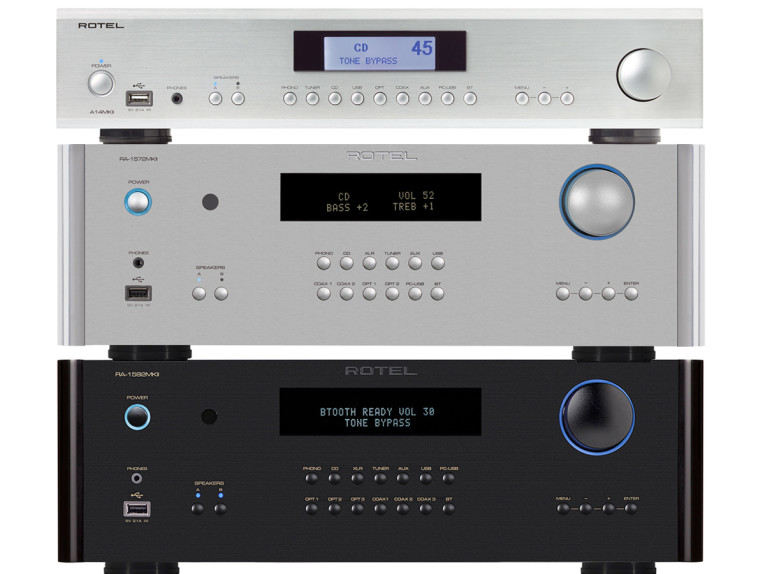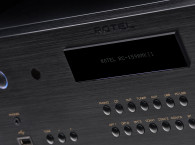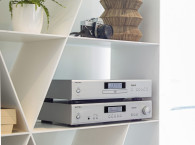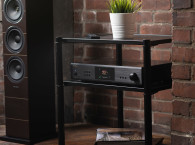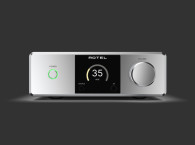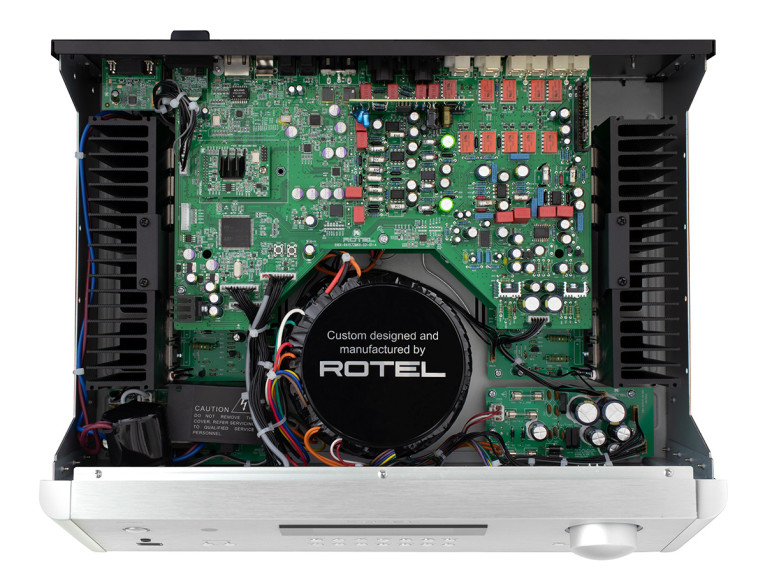
The Rotel A14 is the flagship integrated amplifier model in Rotel’s 14 Series. Building upon the successful A14, the new A14MKII upgrades include a new Texas Instruments Digital to Analog Converter (DAC) supporting 32-bit, 384kHz audio complimented by 25 component changes in the DAC output filters. Power supply component changes were also implemented leveraging design strategies from Rotel’s Tribute models. According to the Japanese company, additional circuit changes in the signal path circuits provide “a richer and fuller audio performance with even more lifelike reproduction of the audio.”
The A14MKII supports all popular source inputs including aptX and AAC Bluetooth codecs for wireless streaming, PC-USB up to 32-bit/384kHz, MQA decoding and rendering, analog, digital and a Moving Magnet Phono Stage.
The RA-1572MKII has been engineered from Rotel’s original RA-1572 integrated amplifier with critical circuits and component upgrades including a Texas Instruments 32-bit, 384kHz DAC supporting PC-USB 32-bit/384kHz PCM and MQA rendering and decoding. Over 33 component changes in acoustic capacitors, filter capacitors and power supply allow improved audio quality. This amplifier also offers a Moving Magnet Phono Stage, XLR balanced input, digital Coax and Optical, front USB port and aptX and AAC Bluetooth wireless streaming to support all popular sources.

As the flagship integrated amplifier in Rotel’s 15 Series, the RA-1592MKII delivers 200 Watts of Class AB output power into 8 ohms and now delivers an even higher level of audio performance with upgrades to all critical circuits. The Texas Instruments 32-bit 384kHz DAC circuits feature 12 new coupling capacitors with improved frequency response and even higher component tolerances. Upgraded capacitors are also used in critical signal paths totaling over 28 changed components with additional changes in the power supply circuits, all resulting in improved audio dynamics.
The RA-1592MKII is replete with source inputs including aptX and AAC Bluetooth wireless streaming, MQA decoding and rendering via PC-USB, PCM PC-USB audio up to 32-bit/384kHz, Moving Magnet Phono Stage, Analog, Digital, XLR balanced and front panel USB port.
All models feature Ethernet and RS232 connections for control system integration, IR remote, front panel status display, intelligent power control, Audio-Direct Tone Bypass mode and dual A-B 5-way speaker binding posts.
All the new Rotel MKII models are also available in silver and black finishes. Orders for the A14MKII, RA-1572MKII and RA-1592MKII placed now with authorized Rotel and Sumiko dealers are expected to begin shipping May 2021 in the United States and Canada, and to the rest of the world shortly thereafter.
Suggested retail price (without tax):
· A14MKII - $1,599.99 USD / 1,399 EUR
· RA-1572MKII - $2,099.99 USD / 1,899 EUR
· RA-1592MKII - $3,199.99 USD / 2,699.00 EUR
Known worldwide for their quality, reliability, and value, Rotel is a family business since 1961, designing and manufacturing its products in its own production facilities.
www.rotel.com
